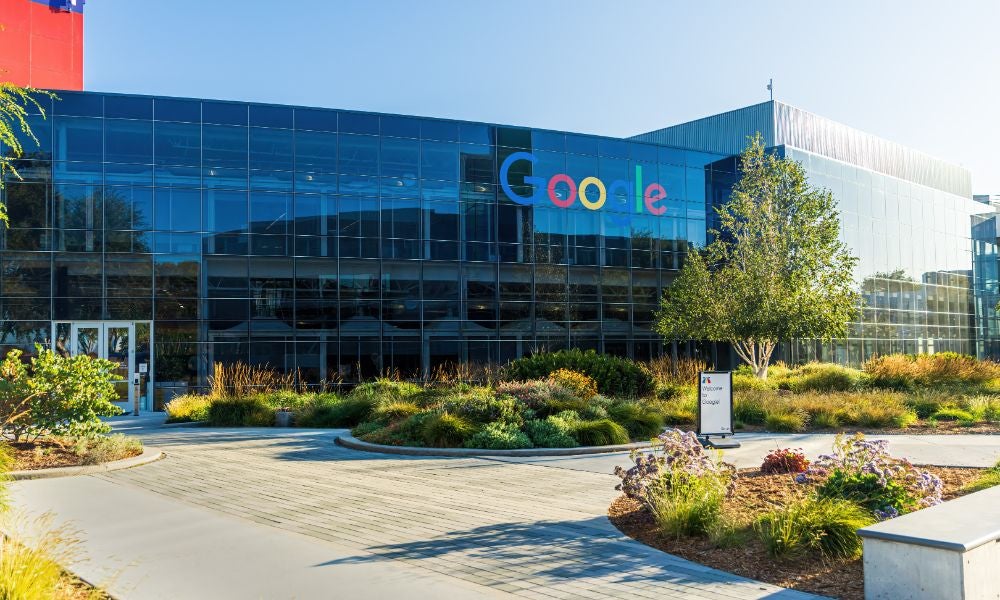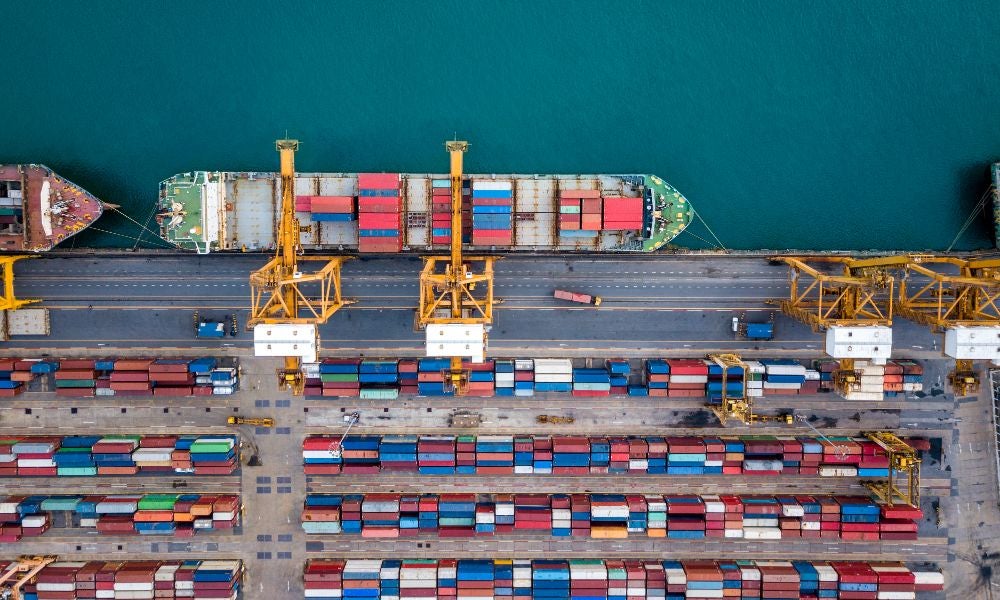The US election and supply chains: how will multinationals respond?
Political turnover in major economies can significantly impact multinational corporations. How might the 2024 US presidential election reshape their global supply chains?
Half the world’s population will have the chance to vote as 72 countries go to the polls this year, making 2024 the biggest election year in human history. With the added political uncertainty likely to be a key concern for multinational corporations seeking to secure their cross-border supply chains, research can lend some insight into how best to navigate the wave of political turnover.
Following sensational UK elections that saw the Labour Party roundly defeat Rishi Sunak’s Conservative Party after 14 years in power, election watchers now have their eyes trained on the upcoming US presidential election on 5 November. The outcome of that matchup – now between former President Donald Trump and current Vice President Kamala Harris following President Joe Biden’s campaign exit – is still impossible to predict, but, given the importance of the US to multinational corporations, it will require many companies to adjust their supply chain involvement.
In a 2022 research paper, Adjusting supply chain involvement in countries with politician turnover: A contingency framework, Professor Maggie Dong, Head of the School of Marketing at UNSW Business School, and her co-authors looked at the role of political leadership change in global supply chain decisions. They found the policy uncertainty associated with countries undergoing turnover of a top political leader drives multinational corporations to adjust their supply chain involvement in those countries, generally increasing engagement when a successor leader is perceived as right-wing and decreasing when the successor is more left-wing. But other key factors are also at play, such as the length of the successor’s political career and the level of corruption in the turnover country.

According to Prof. Dong, the research can shed light on the likely effects of multinational corporation involvement should Trump or Harris be the victor in November. “As neither of them is the current president, it’s known to all that there will be politician turnover from the result of this election,” she said. “So multinational corporations with supply chain operations in the US should have started preparing for their adjustments to the turnover. The unknown/uncertain part is who wins the election, which could largely determine whether multinational corporations expand or shrink their supply chains in the US.”
Trump vs Harris: predictive insights
Prof. Dong identified several predictive insights about the upcoming election based on her research. “Taken together, I think both Trump and Harris have their strengths and weak points in relation to their influences on multinational corporations’ supply chains,” she concluded, turning to the findings of her paper.
“On average, in response to a politician turnover (certain in this election), a multinational corporation will reduce its proportion of customers in the US by 10.3%, supplier proportion by 8.23% and transaction volume by 8.3%,” she explained.
Read more: The challenges of using true demand through the supply chain
“When the successor is more right-wing than the incumbent (i.e., Trump), a multinational corporation will instead increase its proportion of customers by 3.5% in the US, its proportion of suppliers in the US by 7.1% and transaction volume in the US by 3.9%,” she added. “As Harris is in the same wing as Biden, a multinational corporation will decrease its proportion of customers by 8.7%, proportion of suppliers by 9.7% and transaction volume by 13.3% in the US. Hypothetically, if the successor is more left-wing, multinational corporations tend to decrease their supply chain involvement more significantly.”
A potential moderating factor is the length of the successor’s political career, with the research showing that when a successor has a political career of less than 25 years, the pullback effect in multinational corporations’ supply chain involvement is more pronounced. In these circumstances, multinational corporations would decrease their US customer proportion by 16.8%, supplier proportion by 18.2% and transaction volume by 19.4%.
“In contrast, when the successor has a long political career (more than 25 years), the effect becomes negligible,” Prof. Dong said. “Given that Trump has a short political career, his election could amplify the negative impact of political turnover, though his right-wing stance may result in a slight positive effect,” she added. “On balance, if he wins, the overall impact on multinational corporations’ supply chain involvement in the US would likely be slightly negative.”

On the other hand, a President Harris, with her relatively long political career of 20 years, would likely also cause a slight reduction in multinational corporations’ supply chain involvement in the US. “From the perspective of multinational corporations’ supply chain operations, the comparison between these two scenarios suggests a close draw.”
Finally, while the research showed the negative effect of politician turnover is exacerbated by corruption in the turnover country, Prof. Dong said this was not likely to be meaningful in the US, which has a relatively low corruption score.
Political nuances
When the multinational itself is also based in the turnover country, as in the case of the many US-based multinational corporation supply chain managers now preparing for the upcoming election, Prof. Dong’s research found the politician turnover effect less pronounced than when turnover occurs in a host country in the multinational corporation's supply chain.
“That is, multinational corporations based in the US will be less affected by the upcoming election in the US,” she explained. “It is understandable, as they know better about the situations there and are more capable to adapt to the changes brought by the new political leader in the country they are more knowledgeable of.”
Read more: Apple and Foxconn: addressing power imbalances in global supply chains
Noting that the paper measured market-friendliness by whether a politician’s political party is left-, middle- or right-wing, Prof. Dong said she and her co-authors believe further research is necessary to explore the political successor’s individual ideology, the public’s perception toward their market-friendliness and the successor’s ideology both before and after being elected.
“There are nuances in this topic,” she said. “Taking Trump as an example, he is in the right wing, but his America First policy is against globalisation and free market globally. So, it is unclear whether the general public would perceive him as more market-friendly or less than his left-wing rival. We’d call for more research in this line.”
She said the US and recent UK elections have also inspired her to further consider other aspects of successor politicians, including ethnicity, gender and running mate choice, that are being used as strategic levers in recent elections.
How supply chain managers can adjust
Prof. Dong explained that supply chain managers can use the research results as a reference for the typically conservative reaction to politician turnover. “We believe managers can benefit from a normative understanding of common practices,” she said. “With such knowledge, they can choose to follow the common practice or deviate from it when faced with politician turnover.
Read more: Demand fulfilment: a key to supply chain management sustainability
“Our contingency model also provides a more nuanced reference for typical adjustment strategies, potentially enabling managers to anticipate how they will want to adjust supply chain involvement before they actually need to do so,” Prof. Dong added.
“The contingency model is most useful in countries with elections, such that it may be possible to predict the successor or most likely successors well in advance,” she said. “For example, if the current leader is left-wing, then the average multinational corporation would make a small reduction in supply chain involvement for a left-wing successor (similar market-friendliness) and would increase supply chain involvement for a right-wing successor.
“Meanwhile, if the incumbent is right-wing, then turnover is unlikely to increase market-friendliness, so the average multinational corporation could anticipate making some degree of reduction in supply chain involvement,” she added. “In short, although firms cannot choose political successors or control corruption within a country, managers can use these variables for business planning, provided that they will want to respond to turnover in ways that are typical of the multinational corporations in our data.”

Key insights for policymakers
The findings may offer more value to policymakers, who can use them to more proactively and accurately estimate the impacts of politician turnover on important local questions ranging from economics and employment to security in supply chain-related sectors, Prof. Dong said.
“The findings may also inform several possible paths by which policymakers can control fluctuations in supply chain sectors,” she said. “For many countries, global supply chain business is fundamental to the economy (e.g. selling overseas to earn foreign currencies; sourcing overseas to lower production costs) and security (e.g. sourcing critical minerals and pharmaceuticals from overseas), so governments try to anticipate how policies will affect supply chains and respond proactively.”
Prof. Dong pointed out that international trade comprises a significant proportion of many countries’ gross domestic product (GDP). For example, it accounts for more than a quarter of the US economy; Germany depends on it for nearly 90% of its GDP.
“Our findings from the contingency model are helpful for anticipating the size of the trade decrease (or, possibly, a trade increase) from any given politician turnover event and, accordingly, may guide forecasts of trade and GDP conditions,” she said. “Based on such estimations (or more advanced estimations for more accurate forecasts), governments and political groups can decide whether they need proactive measures to minimise the potential shrinkage in the trade volume.”
Subscribe to BusinessThink for the latest research, analysis and insights from UNSW Business School
Policymakers may also seek to minimise declines in trade by enhancing public knowledge about the policy preferences and market-friendliness of an incoming political leader.
“The more the public and firms know about the successor, the less likely they should be to delay their commitment,” she said. “To be even more proactive, stakeholders in the elections/selections of a country’s top political leader may use our findings as a reference to identify the candidates that should cause positive (or, at least, less negative) fluctuations in the trade volume.
“In countries such as Germany that are highly dependent on international trade, the difference matters substantially for GDP. Of course, real-world choices of political successors are complex, and anticipated supply chain fluctuations are just one consideration,” Prof. Dong concluded.
